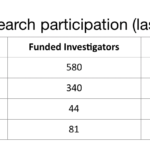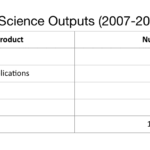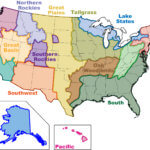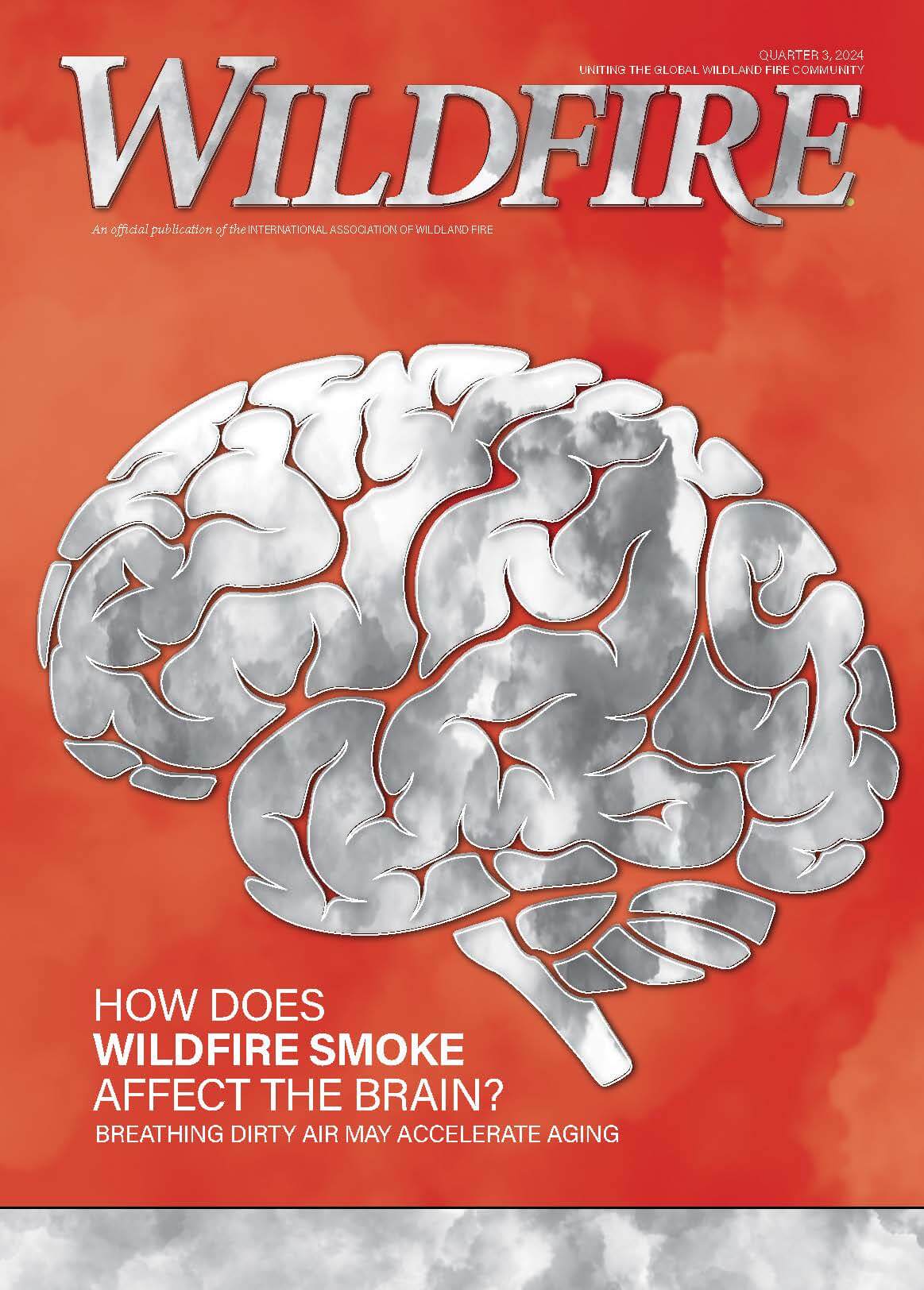by John Cissel and Tom Zimmerman
A history of success in fire science
In the Federal Fiscal Year (FY) 1998 Appropriation for Interior and Related Agencies, Congress established funding and direction to initiate the Joint Fire Science Program (JFSP). Federal wildland fire management agencies developed the Joint Fire Science Plan to provide program direction. Under the guidance of an interagency Governing Board, the program matured into a full-featured science program that uses a multi-faceted process to determine research priorities; conducts efficient and open proposal solicitation, review, and funding procedures; and has an effective, collaborative science delivery and exchange mechanisms.
As documented by four successive program reviews since 2002, JFSP has been a highly successful and integral component of the interagency wildland fire management program. With a relatively limited budget, it has improved efficacy and accountability of agency activities by funding research on timely and important topics. These reviews clearly identified the critical role JFSP has played in catalyzing collaborative efforts across management and science boundaries, and in articulating an interagency, management-driven science agenda.
However, as JFSP enters its 21st year, current trends are placing its future at risk. Recent annual federal budgets have yielded progressively declining funding levels and now, the proposed Federal Fiscal Year 2019 President’s Budget includes no funding for JFSP. This paper highlights the unique values and importance of the program and illustrates the magnitude of impacts that will result from implementation of such drastic funding proposals.
Budget history
JFSP was initially funded in federal FY 1998 at $8 million, half from Department of the Interior (DOI) and half from Forest Service, U.S. Department of Agriculture. This funding was doubled in FY 2001. JFSP funding held steady until dropping to $14 million in FY 2006, then to $13 million in FY 2012. Funding dropped again in FY 2017 to $9 million, then to $3 million (all DOI) in FY 2018. The proposed FY 2019 President’s Budget eliminates the program.
Program organization and focus
JFSP program organization reflects a unique focus on management-driven research questions. A 12-person Governing Board, comprised of employees of the agencies that fund JFSP plus a US Geological Survey member, provides guidance and direction to the research questions selected for study, selects specific research proposals for funding, and selects new science and science exchange projects funded by JFSP. In addition, a unique program investment strategy, developed with input from land management and fire organizations and other stakeholders, maintains a balance among the types of science investigations, the mix of issues addressed, science exchange priorities, and short-term versus long-term investments.
Research
JFSP research has been an important and highly relevant component of wildland fire science. It has funded a significant portion of wildland fire and fuels research conducted in the USA, averaging 28 peer-reviewed studies annually. Most studies are collaborative projects involving federal land managers and federal and university scientists. State, private, and NGO scientists and managers have also made important contributions. An important characteristic of JFSP research is that investments directly translate into research accomplishments. JFSP does not fund salary for permanent employees, including tenured faculty, and in-kind and contributed costs of funded proposals have historically averaged approximately 60% of the total requested funds. This means that JFSP capitalizes on the existing capacity of federal and university scientists to conduct value-added research.
Another key aspect of JFSP is the open proposal solicitation and independent peer-review processes. Open proposal solicitation means anyone can submit proposals that address research questions listed in proposal solicitations. Simply put, JFSP accesses the entire talent pool. Having open access to university scientists is significant because federal science agencies alone do not present the diversity of skills, experience, and innovation found within the university system. JFSP has funded scientists from 153 universities, including 77 that were the primary funding recipient and home institution for the principal investigator (Table 1).

Independent peer review is a cornerstone process of high-quality science. JFSP regularly convenes independent peer-review panels to evaluate scientific merit and management relevance of submitted proposals. Only the highest-rated proposals are considered for funding. This means that a wide range of experience, skills, and knowledge is used to evaluate the research questions identified by managers, and that each study meets a peer-review quality standard. In addition, fire and fuel managers participate as full members of JFSP peer-review panels which helps assure that funded proposals have direct management relevance.
As an indicator of productivity, JFSP research constitutes a significant portion of published wildland fire and fuels research. On average, JFSP research results are published in 44 journal papers annually, including 20%-40% of the US based science papers in the International Journal of Wildland Fire and the Journal of Fire Ecology, two of the more important science journals for wildland fire. JFSP research results appear in many other publications including federal science papers, book chapters, conference proceedings, etc. (Table 2).

Research outputs are important, but not the ultimate goal for JFSP. The JFSP Governing Board has long sought to evaluate the management-relevant outcomes of JFSP investments. According to an analysis by Hunter (2016), 86 of 122 (71%) of sampled agency fire planning and policy documents cited JFSP results. Hunter (2016) also showed that 41 of 48 (85%) of sampled JFSP projects were cited in agency fire planning and policy documents. This emphasizes the continuing value of JFSP research results for managers.
JFSP plays an indispensable role in the overall wildland fire research infrastructure. Research agencies and universities depend on JFSP funds to support value-added research on high-priority management issues. Elimination of JFSP means that the limited and shrinking pool of research funds available elsewhere will be increasingly allocated to cover fixed costs (e.g., laboratories and permanent employee salaries) and new research to address agency management priorities will be significantly diminished. Overall research capacity will be significantly damaged. This is particularly true for universities where the largest and most diverse set of skills resides, and where there are few sources of alternative wildland fire research funding.
Science exchange
Science exchange among scientists and managers has been central to the mission of JFSP since its origin. The first phase of science exchange was viewed as technology transfer and focused on the transfer of science to managers by scientists. Technology transfer was an explicit proposal evaluation criterion and funding decisions by the Governing Board were based in part on planned science delivery.
After the first JFSP program review (Abbey et al. 2002) recommended that JFSP do more to promote science delivery, the Governing Board invested in program-level science delivery capabilities. A communications specialist was hired and a science delivery plan was developed. Two important changes resulted from these actions. First, science delivery was recognized as a more complete system of problem and research question development that engaged managers in science implementation and facilitated exchange of science results interpreted and demonstrated in manager-relevant terms. The second change saw development of multiple science delivery products including science briefs, digests, and syntheses. These products have been widely disseminated and broadly used.
A second program review (Jones et al. 2009) again emphasized that JFSP needed to do more in terms of science delivery. This time, the Governing Board decided a major change in scope would significantly improve the effectiveness of JFSP science delivery and exchange. This set the stage for creation of the JFSP Fire Science Exchange Network (FSEN). Funded in several rounds of proposal solicitation starting in 2009, the network has grown to include 15 exchanges covering the entire US (Figure 1).

The FSEN engages practitioners, scientists and citizens in a wide-ranging set of activities to inform research agendas and accelerate understanding and adoption of fire science. The FSEN reported 12,218 individual activities reaching 417,419 participants in FY 2017, an increase of approximately 50% from FY 2014 in both categories. An independent evaluation of FSEN effectiveness conducted by the University of Nevada, Reno (Copp et al. 2017) stated that:
- The FSEN is increasingly achieving intended outcomes as well as outputs.
- Exchange users demonstrate higher levels of confidence in their ability to find, interpret, and apply fire science.
- Exchange users report better engagement with fire scientists, and increased use of fire science by fire managers.
The FSEN has become the ‘go-to’ source of the latest fire science information for many wildland fire and fuels practitioners and citizens throughout the country, and is seen by many in the broader land management community as a model for innovative science exchange.
Students
An often overlooked but important contribution of JFSP has been support for university undergraduate and graduate students. These students are the wildland fire managers, scientists, and leaders of tomorrow. The management-driven research focus of JFSP exposes students to managers and management issues early in their career, often in ways that directly impact their careers and the agencies that employ them. From 2011 to 2017, 1,000 students were directly involved in JFSP research (594 undergraduate students; 208 masters students; 198 doctoral students).
In collaboration with the Association for Fire Ecology (AFE), JFSP developed and sponsors two unique programs that directly support engagement of students with fire and fuels managers. The GRIN (GRaduate INnovation) program provides limited supplemental awards to graduate students to enhance student exposure to wildland fire, fuels management, and policy. GRIN awards produce tools useful for fire and fuels managers. Since 2011, 50 students have successfully competed for GRIN awards (27% award rate). Many former GRIN students have successfully entered the fire science and management profession and are making substantial contributions, including professors in fire science at universities and coordinators within the FSEN. JFSP also sponsors travel grants that support student interaction with managers. Over 230 students from 49 universities have received travel grants (average of $630 per grant).
Can existing federal research appropriations make up for the loss of JFSP?
One assertion is that existing federal research programs can absorb the loss of JFSP without real consequence, but in reality, this is not possible.
Eliminating JFSP will result in loss of:
- Manager-driven research agenda.
- A strategic approach to science and science exchange investments.
- A significant portion of the total wildland fire and fuels research conducted in the US.
- A highly leveraged and value-added means of conducting research.
- Involvement of university scientists.
- Independent peer review of all funded research.
- Student understanding of management issues.
- The Fire Science Exchange Network.
- Major contributions to wildland fire journals and conferences.
The Forest Service is the only real candidate agency to absorb the loss of JFSP because it is the only agency that has a broad-based wildland fire research appropriation. Other agencies (USGS, NASA, EPA, ARS, NOAA) have scientists engaged in fire and fuels research but are narrowly focused or largely dependent on external funding for wildland fire research. Forest Service research is also coping with significant budget cuts and is not in a position to take on new work without new funds. In fact, loss of JFSP would significantly erode USFS research capacity as budget cuts to the agency have made operating funds increasing difficult to come by. Funding trends for Forest Service research are on a long-term downward trajectory. Despite greatly increasing expenditures for wildland fire over the last 20 years, wildland fire research funds show a downward trend. Appropriated wildland fire research funds are actually lower now than in FY 2000, and National Fire Plan funds used for research, which have been as high as $22 million dollars (FY 2002) are slated to be eliminated in the FY 2019 President’s Budget. The combined effect of cuts to JFSP and Forest Service research is doubly impactful since JFSP funds have greatly leveraged Forest Service funds to create large-scale collaborative studies that may no longer be possible.
USGS has a unique role with the DOI management agencies and has many excellent scientists with relevant expertise, but is missing expertise in large elements of the JFSP mission (e.g., smoke, fire behavior, social science, fire weather, incident management, human health). USGS scientists largely depend on external funding sources for fire research because USGS does not have a wildland fire research appropriation.
Options
Given the reduced operations of JFSP in FY 2018, and the potential that JFSP could be eliminated in FY 2019, what are the options the wildland fire community should be considering? The contributions of JFSP are substantial and loss of the program will have significant effects in both the short and long terms. These effects are not intrinsically associated with the personnel or particular administrative history of the program, but are the deliberate result of specific values and policies, namely:
- An investment strategy focused on the needs of managers.
- Open proposal solicitation and competition, and independent peer-review.
- High leveraging of program and agency funds.
- Strong commitment and outstanding record of science delivery and exchange.
In theory, any or all of the specific practices that support these policies could be adopted by a new or revised science investment program. However, it has taken 20 years for JFSP to fully develop the infrastructure and procedures necessary to maximize the value of these practices and to ensure fair and equitable management. Disbanding JFSP and starting a new program in the future with a similar or revised mission will incur significant start-up costs and take time to mobilize.
Given the magnitude of impacts that would result from the loss of JFSP, we can only offer one option that will fully address the wildland fire community science needs. It is a straightforward option: restore JFSP funding to past budget levels ($12-16 million). Full operations could be restored fairly quickly. Wildland fire challenges continue to grow and research that supports the interaction of managers and scientists to address these challenges is urgently needed.
An option that does not address wildland fire science needs, but will address the community’s short- and mid-term science delivery requirements is to continue funding for FSEN but eliminate new research. At a minimum, this capacity is needed for the next 3-5 years as research already funded by JFSP is completed and enters an active science exchange phase. In the long run, maintaining a vigorous science exchange capacity may not be needed if new research is not also funded.
We considered an option that would reboot JFSP with a new strategic focus, but the recent JFSP program review conducted by agency leaders (Berg et al. 2017) did not identify any need to change the focus of JFSP, nor has the interagency JFSP Governing Board identified a need to change program focus.
In our opinion, JFSP has been a vital component of the wildland fire and fuels community for 20 years and loss of the program would be highly damaging. However, the current threat to JFSP’s future indicates that agency and congressional leaders may not appreciate the vital roles that JFSP plays in the wildland fire enterprise. To the extent this is true, JFSP may benefit from a sustained period of enhanced engagement with interagency leaders, practitioners, and stakeholders. Such engagement could help clarify top priority issues facing managers in the next 3-5 years. Identified issues could include research or science exchange needs, or other opportunities to work across the science-management boundary to improve fire science application. These needs are reasonably well understood, but a period of enhanced engagement could sharpen the focus of future research questions and science exchange needs, and could lead to new understanding and priorities. Importantly, such an exercise could also build understanding of the critical role JFSP plays in the wildland fire community, especially among agency leaders.
To face the wildfire challenge, fund the Joint Fire Science Program
This analysis describes the impacts of the loss of JFSP to the wildland fire community and presents some options for the future. In our view, without JFSP, links between research and management will be weakened, and a standard for addressing knowledge gaps and meeting research needs will be lost. These losses are significant and wide-ranging and will not be made up by federal agencies individually, or collectively. In addition, ending this program is not consistent with statements in the Federal Wildland Fire Management Policy and the National Cohesive Wildland Fire Management Strategy Guiding Principles that call for basing fire management plans, activities, and decisions on the best available science, knowledge, and experience. With wildland fire presenting greater challenges to natural resources and society each year, it seems incomprehensible to de-fund indispensable programs that advance overall management capabilities. We urge reconsideration of full funding for JFSP and continued engagement of JFSP with interagency managers to ensure future research and science exchange needs are well understood and articulated.
+
Authors’ note – Both authors have been directly engaged with JFSP in the past and have detailed knowledge of JFSP practices. However, both are now retired and not affiliated with JFSP or federal government research. The opinions in this paper are strictly that of the authors and do not represent any official input or opinion of JFSP or government agencies.
+
Acknowledgements – The content of this paper has been improved by external reviews. The authors gratefully acknowledge the contributions of Nate Benson (Fire Science and Ecology Program Lead, National Park Service), Molly Hunter (Research Scientist, University of Arizona), and John Laurence (retired, formerly Forest Supervisor, Wallowa-Whitman National Forest, and US Forest Service Research Program Manager) for their reviews of this paper.
+ + +
REFERENCES
Abbey R., P. Roussopoulos, M. Beighley, L. Hartmann, M. Kearney, P. Seamon, T. Sexton, J. Stubbendieck, S. Vail, M. Walker, J. Whitney, and J. Youtz. 2002. Joint Fire Science Program Five Year Program Review Report. DOI/USDA Forest Service paper on file JFSP program office, Boise, ID. 36 p.
Berg K., V. Christiansen, C. Dawe, J. Freemuth, M. George, J. Glenn, J. Laurence, B. Rice, T. Patel-Weynand, C. Wilcox, M. Jones, and C. Gucker. 2017. 2017 Joint Fire Science Program Review Report. DOI/USDA Forest Service paper on file JFSP program office, Boise, ID. 10 p.
Copp C., B. Davis, W. Evans, and L. Singletary. 2017. Joint Fire Science Exchange Network 2017 Evaluation Report: A National Cluster Evaluation of the Fire Science Exchange Network Processes and Impacts. University of Nevada, Reno. 56 p.
Hunter, Molly. 2016. Outcomes of fire research: is science used? International Journal of Wildland Fire 25(5) 495-504.
Jones B., C. Joyner, K. Brandel, S. Cutter, J. Douglas, L. Decker, R. Eardley, G. Morgan, R. Wills. 2009. Joint Fire Science Program 5-Year Program Review Report. DOI/USDA Forest Service paper on file JFSP program office, Boise, ID. 20 p.
+
Note: Most data in this paper are excerpted from evaluation reviews and annual reports on file at the JFSP office, Boise, ID.
+ + +
About the Authors
John Cissel is retired BLM and USFS and served as the former JFSP Program Director; BLM Research Coordinator, Oregon State Office; and Research Liaison, HJ Andrews Experimental Forest.
Thomas Zimmerman is Wildland Fire Management Portfolio Manager, Management and Engineering Technologies International, Inc. (METI); Past President IAWF; and Retired USFS as former Wildland Fire Management RD&A Program Manager, Rocky Mountain Research Station.
